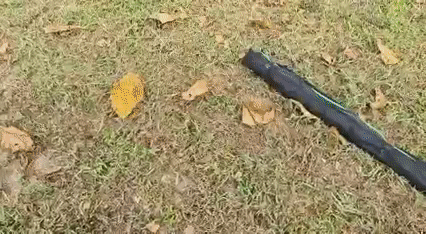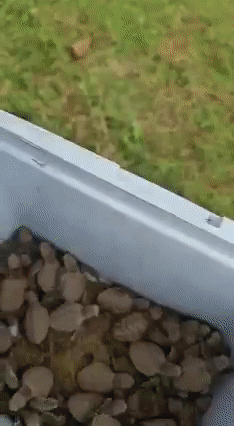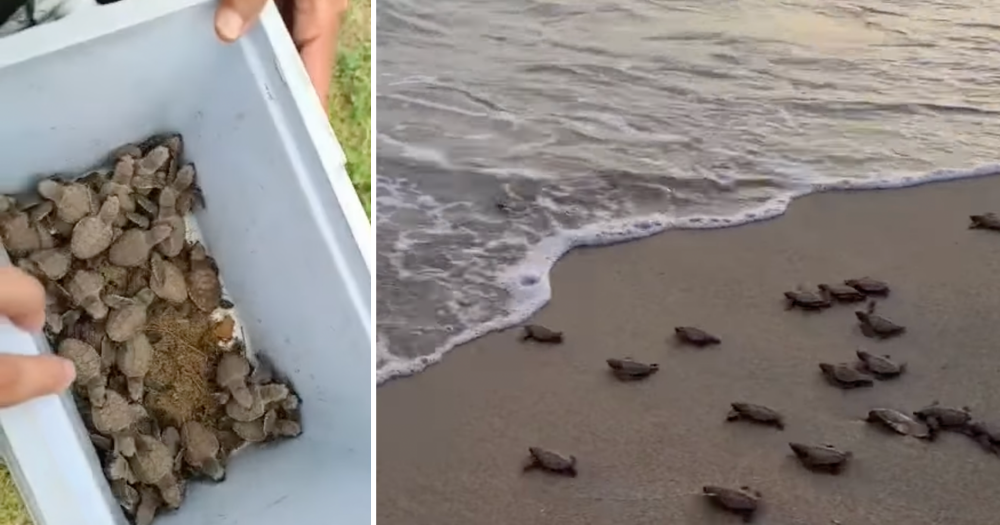Follow us on Telegram for the latest updates: https://t.me/mothershipsg
A group of anglers heading home from a fishing trip at East Coast Park chanced across a rare and serendipitous sight — tiny, newly-hatched Hawksbill turtles making their way to the open water for the first time.
Baby turtles all over the place
Syairi, one of the members of fishing group Power Anglerz Singapore who witnessed the incident, shared with Mothership that he and two fellow anglers were packing their belongings when they spotted something small crawling in the grass.
It was around 6pm on June 18.
When they bent down to take a closer look, the group were surprised to find that it was a small turtle hatchling.
A careful look around and they noticed more turtles "all over the place" making their way across the large grass patch.
 Video from Marine Stewards / FB
Video from Marine Stewards / FB
Syairi and his friends then scoured the place for more turtle hatchlings, and slowly collected and placed them into a cooler box they had on hand.
This was so the turtle hatchlings would not "go missing from their siblings", Syairi said.
 Video from Marine Stewards / FB
Video from Marine Stewards / FB
Turtles released into waters
At the same time, the group of anglers alerted the National Parks Board of the sighting and awaited their help.
Syairi added that it was his first time seeing turtles in the wild — he had only ever seen the creatures at the zoo or on television.
NParks staff subsequently arrived on site and counted and weighed the hatchlings.
A total of around 100 turtle hatchlings were found, and belonged to the critically endangered Hawksbill turtle species, NParks revealed in a Facebook post on June 19.
Here's Syairi and friends, along with NParks staff, safely guiding the baby turtles to the waves.This isn't the first time Hawksbill turtles have chosen East Coast Park as a nesting site.
Hawksbill turtles are one of two species of marine turtles that can be found on Singapore shores, and the individuals may visit the same site to nest every few years, according to NParks.
Female Hawksbill turtles usually lay eggs on sandy beaches, and can lay up to 200 eggs each time.
The eggs usually hatch after two months and the hatchlings will head for the open sea.
However, the survival rate of a hatchling is extremely low, as only one in a thousand hatchlings make it to adulthood.
Once hatched, their journey in the open sea is a treacherous one, as they face predators like shorebirds and crabs.
Thankfully in this recent case, all the hatchlings made it safely to shore. What happens next in the ocean is up to them.
Members of the public who encounter a nesting turtle and its eggs, or hatchlings, can call the NParks helpline at 1800-471-7300.
Keep your distance from the turtle and the eggs and do not shine lights at it or use flash photography.
Top photo from Marine Stewards / FB
If you like what you read, follow us on Facebook, Instagram, Twitter and Telegram to get the latest updates.

